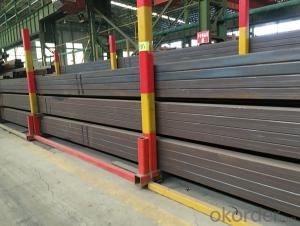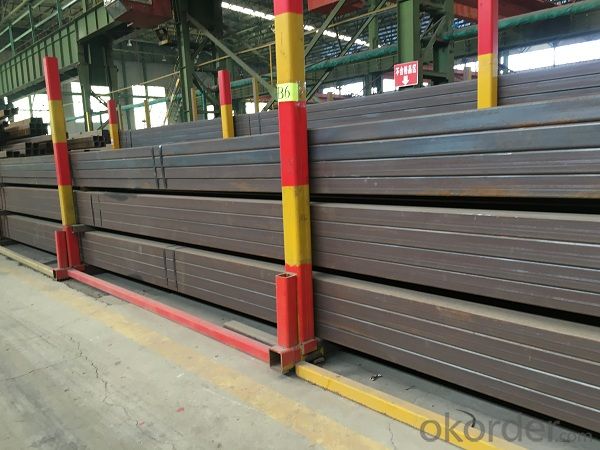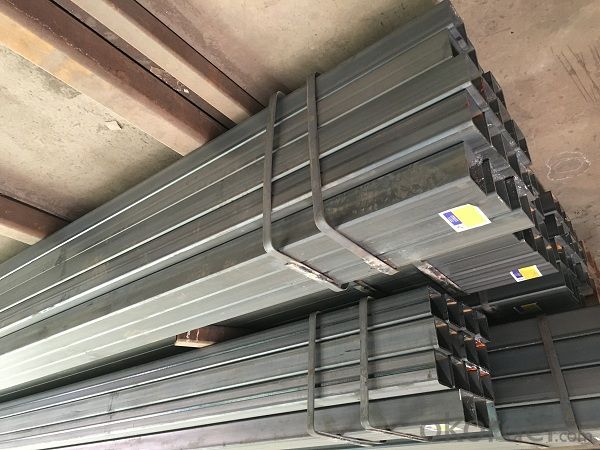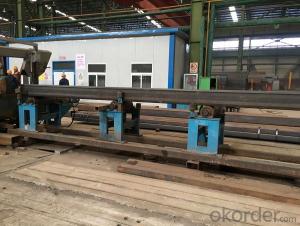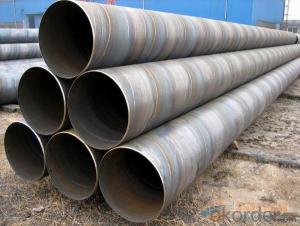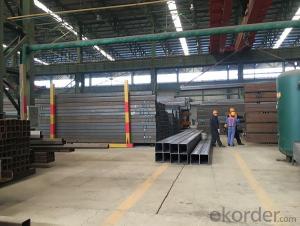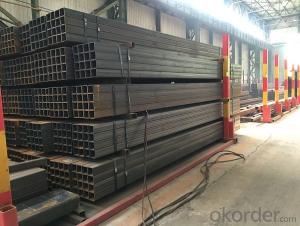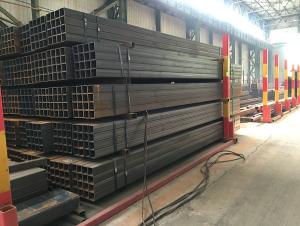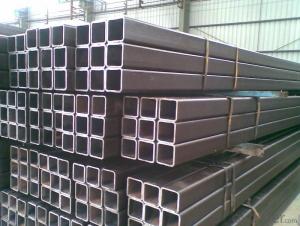Welding square rectangular pipe for many varieties of construction
- Loading Port:
- Tianjin
- Payment Terms:
- TT OR LC
- Min Order Qty:
- 26 m.t.
- Supply Capability:
- 15000 m.t./month
OKorder Service Pledge
OKorder Financial Service
You Might Also Like
Specification
1、 Welding square rectangular pipe for many varieties of construction
Square tube, square tube is a kind of call and rectangular tube, is equal and not equal to the length of steel pipe. Is the strip through the process of processing roll system. In general is the strip through the demolition of the package, flat, curly, welded to form a circular tube, and then rolled into a square tube and then cut into a square tube and then cut into the required length.
2、 Welding square rectangular pipe for many varieties of construction
• High manufacturing accuracy
• High strength
• Small inertia resistance
• Strong heat dissipation ability
• Good visual effect
• Reasonable price
3、 Welding square rectangular pipe for many varieties of construction
Standard | GB, DIN, ASTM |
Grade | 10#-45#, 16Mn 10#, 20#, 45#, 16Mn |
Thickness | 1.5 - 25 mm |
Section Shape | Square and rectangular |
Outer Diameter | 20*20 mm-------400*400mm 20*30mm*300*500mm |
Place of Origin | Tianjin, China (Mainland) |
Length | 3-12M |
Outer Diameter | 20*20 mm-------400*400mm 20*30mm*300*500mm |
Grade | 235B 345B |
Standard | ASME, ASTM |
1) Material:(ASTM A 106/A53 GRB.API5LGRB,GB,235B,345B
2) Specification range:OD: 20*30mm----300*500mm 20*20 mm---400*400mm ,WT: 1.5 - 25 mm ,length:3-12m or according to the requirement of clients.
3) Excutive standards:GB,ASME API5L.ASTM A 106/A53,Despite of the above
4) Surface:black lacquered,varnish coating or galvanized.
5) Ends:Beveled or square cut ,painted.
6) Packing:bundles wrapped with strong steel strip,seaworthy packing.
4、Packaging & Delivery
Packaging Details: | seaworthy package,bundles wrapped with strong steel strip |
Delivery Detail: | 15-30days after received 30%TT |
5、 Welding square rectangular pipe for many varieties of construction
①How is the quality of your products?
Our products are manufactured strictly according to national and internaional standard, and we take a test
on every pipe before delivered out. If you want see our quality certifications and all kinds of testing report, please just ask us for it.
Guaranteed: If products’ quality don’t accord to discription as we give or the promise before you place order, we promise 100% refund.
②How about price?
Yes, we are factory and be able to give you lowest price below market one, and we have a policy that “ for saving time and absolutely honest business attitude, we quote as lowest as possible for any customer, and discount can be given according to quantity”,if you like bargain and factory price is not low enough as you think, just don’t waste your time.Please trust the quotation we would give you, it is professional one.
③Why should you chose us?
Chose happens because of quality, then price, We can give you both.Additionally, we can also offer professional products inquiry, products knowledge train(for agents), smooth goods delivery, exellent customer solution proposals.Our service formula: good quality+good price+good service=customer’s trust
SGS test is available, customer inspection before shipping is welcome, third party inspection is no problem.
6、 Welding square rectangular pipe for many varieties of construction
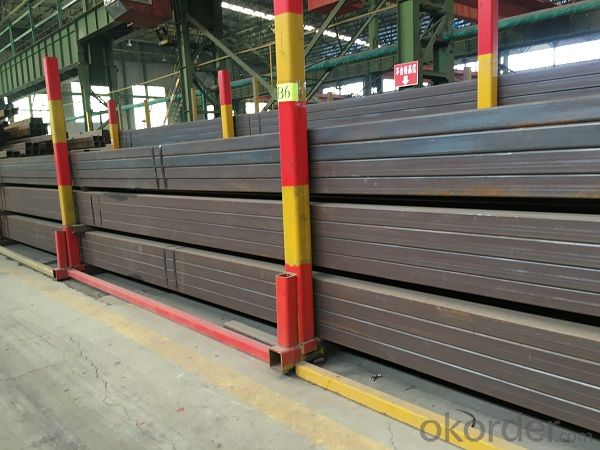
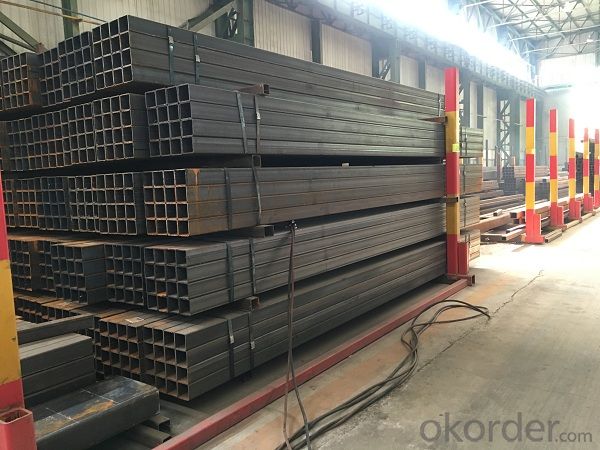
- Q: What is the process of spiral steel tube production?
- Butt welding: the use of advanced double submerged arc welding technology for pre welding, internal welding, external welding. The welded steel tubes are cut into standard lengths using a plasma gage.
- Q: What is the minimum temperature that steel pipes can handle?
- The minimum temperature at which steel pipes can withstand depends on the particular grade and composition of the steel. In general, steel pipes can endure extremely low temperatures without encountering significant issues. In fact, numerous steel varieties are specifically engineered to endure freezing temperatures, making them suitable for a range of uses in industries like oil and gas, construction, and cryogenics. However, it is crucial to acknowledge that steel may become more brittle at exceedingly low temperatures, which can impact its mechanical properties. Therefore, it is vital to meticulously choose the appropriate steel grade and consider any specific requirements or limitations for the desired application when determining the minimum temperature that steel pipes can handle.
- Q: What are the different types of steel pipe connections?
- The different types of steel pipe connections include threaded connections, welded connections, flanged connections, and grooved connections.
- Q: Can steel pipes be used for underground applications?
- Yes, steel pipes can be used for underground applications. They are commonly used for underground piping systems in various industries such as water, oil, and gas. The durability and strength of steel make it suitable for withstanding underground conditions, providing reliable and long-lasting performance.
- Q: Are steel pipes suitable for underground chemical transport?
- No, steel pipes are not suitable for underground chemical transport as they can corrode and react with certain chemicals, posing safety risks and potentially contaminating the transported substances.
- Q: Can steel pipes be used for pharmaceutical manufacturing?
- Steel pipes are an excellent choice for pharmaceutical manufacturing. They are commonly utilized across various industries, including pharmaceuticals, because of their durability, strength, and ability to resist corrosion. In pharmaceutical manufacturing specifically, steel pipes serve primarily as conduits for fluid transportation. This includes the safe transfer of chemicals, solvents, and other essential materials. Additionally, steel pipes are utilized for the distribution of crucial utilities like process water, steam, and more. Stainless steel pipes, in particular, are highly favored in pharmaceutical manufacturing due to their exceptional resistance to corrosion, as well as their ability to withstand high temperatures and pressures. Furthermore, the smooth surfaces of stainless steel pipes prevent the accumulation of particles, making them easy to clean and sterilize. This is crucial in maintaining the stringent cleanliness and hygiene standards required in pharmaceutical production. Overall, steel pipes offer a reliable and suitable solution for pharmaceutical manufacturing, meeting the industry's strict cleanliness and hygiene standards while also providing robustness and corrosion resistance.
- Q: Can steel pipes be used for conveying abrasive slurries?
- Yes, steel pipes can be used for conveying abrasive slurries. Steel pipes are known for their durability and strength, making them suitable for handling abrasive materials. Additionally, their smooth interior surface reduces friction and minimizes the risk of clogs or blockages caused by the abrasive particles present in slurries.
- Q: What are the different types of valves used with steel pipes?
- There are several types of valves commonly used with steel pipes, including ball valves, gate valves, globe valves, check valves, and butterfly valves. These valves serve different purposes and have various designs, such as quarter-turn operation for ball valves, wedge-shaped gates for gate valves, and disc-shaped elements for butterfly valves. Each type of valve offers specific advantages and is selected based on the application requirements and the flow control needs of the steel pipe system.
- Q: How are steel pipes used in the construction industry?
- Steel pipes are widely used in the construction industry for various purposes such as structural support, conveying fluids and gases, and underground utility systems. They are commonly used in building frameworks, bridges, and high-rise structures due to their strength, durability, and resistance to extreme weather conditions. Additionally, steel pipes are utilized for plumbing and drainage systems, providing a safe and efficient way to transport water, sewage, and other fluids.
- Q: What are the different types of steel pipe coatings?
- There are several types of steel pipe coatings, including epoxy coatings, polyethylene coatings, polyurethane coatings, and zinc coatings. These coatings help protect the steel pipes from corrosion, increase their lifespan, and improve their performance in various environments.
Send your message to us
Welding square rectangular pipe for many varieties of construction
- Loading Port:
- Tianjin
- Payment Terms:
- TT OR LC
- Min Order Qty:
- 26 m.t.
- Supply Capability:
- 15000 m.t./month
OKorder Service Pledge
OKorder Financial Service
Similar products
Hot products
Hot Searches
Related keywords
